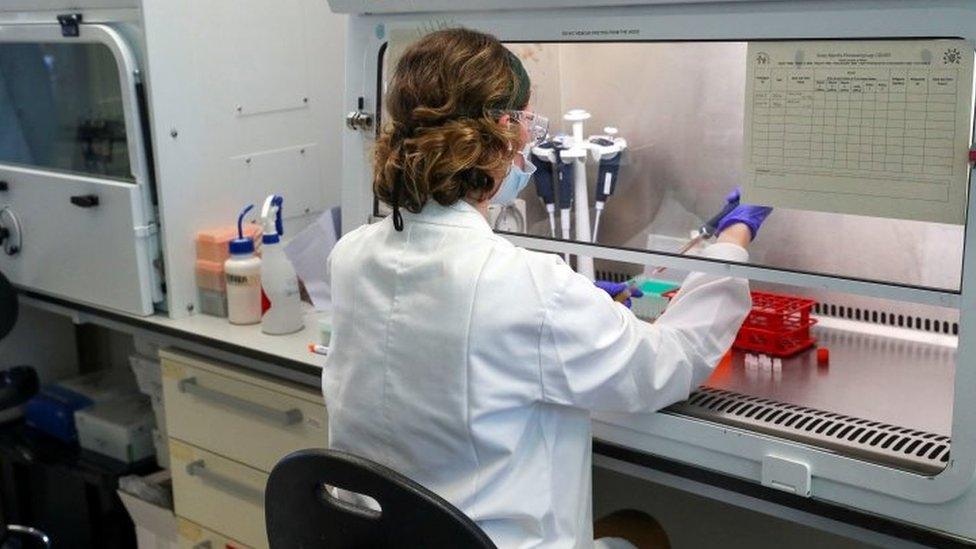Covid vaccine rollout at 'very beginning' in Wales
- Published
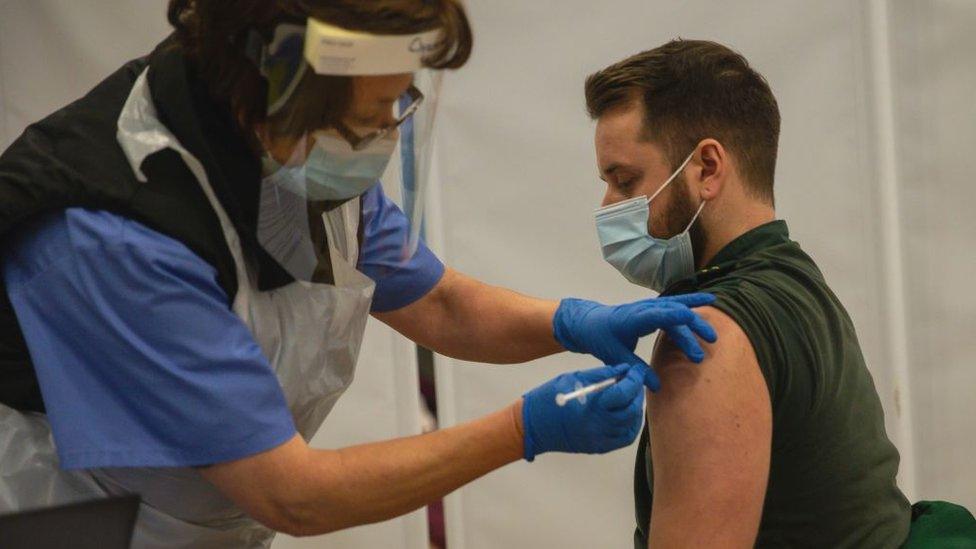
More than 35,000 people have received the Pfizer-BioNTech vaccine in Wales
The Covid vaccine programme is at the "very beginning" and vaccination rates are increasing, Wales' Health Minister Vaughan Gething has insisted.
It follows concerns raised by some politicians over the speed of Welsh vaccine rollout.
Initial figures on how many people have received the first Pfizer-BioNTech jab show Wales is slightly behind those vaccinated elsewhere in the UK.
Mr Gething said there were likely to be "small differences between nations".
"Comparisons are naturally being made on the number of vaccinations administered by the four nations of the UK," he said in a ministerial statement to Senedd members.
"Whilst I recognise the data indicates there are other nations ahead of us, the national data presented at this very early stage of the vaccination roll out should be considered provisional and a snapshot of ongoing activity."
He said there would be "lags" in data being entered, and local factors affecting vaccinations.
"For example the vaccination centre in Cardiff and the Vale was unable to operate for two days because of a virus outbreak linked to the site," he added.
More than 35,000 people have now received the Pfizer-BioNTech vaccine in Wales, including healthcare workers who work in Wales but live over the border in England.
Almost 13,000 of these vaccines were given in the past week.
The number of vaccinations in Wales up until 27 December account for 1.12% of the Welsh population.
In England, 1.4% have received a jab, while in Scotland it is 1.7%, and 1.6% in Northern Ireland.
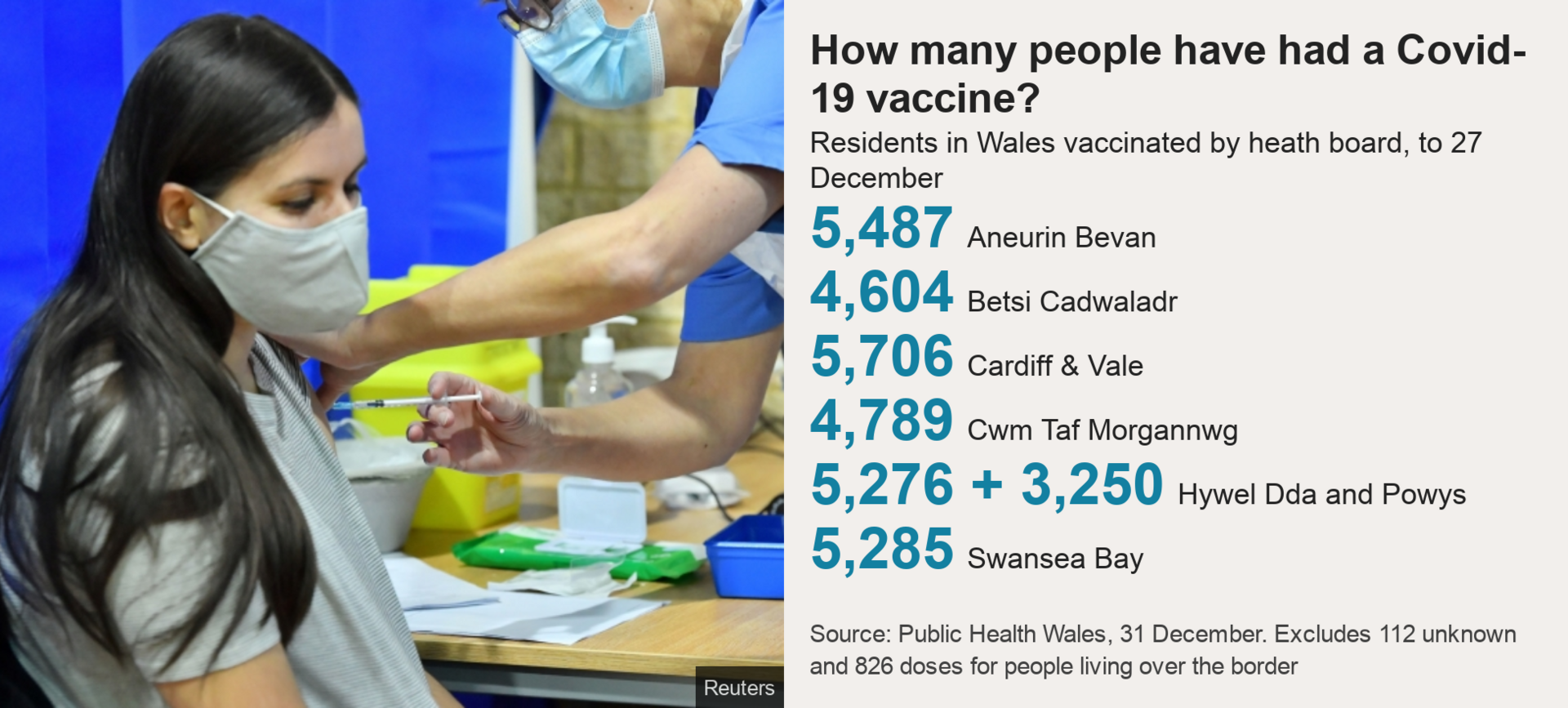

The Welsh Conservative health spokesman Andrew RT Davies flagged his concerns about the vaccine delivery programme on Thursday.
"Three weeks ago, the first Covid-19 vaccine was given in Wales, and since that time we have sadly seen confusion and hope drop away," he said.
"Many people over 80 in Wales were desperately waiting for their appointment to do their bit and have the vaccine but as we quickly learnt they would have to wait longer," he said.
But the health minister said daily vaccination rates were "increasing across Wales".
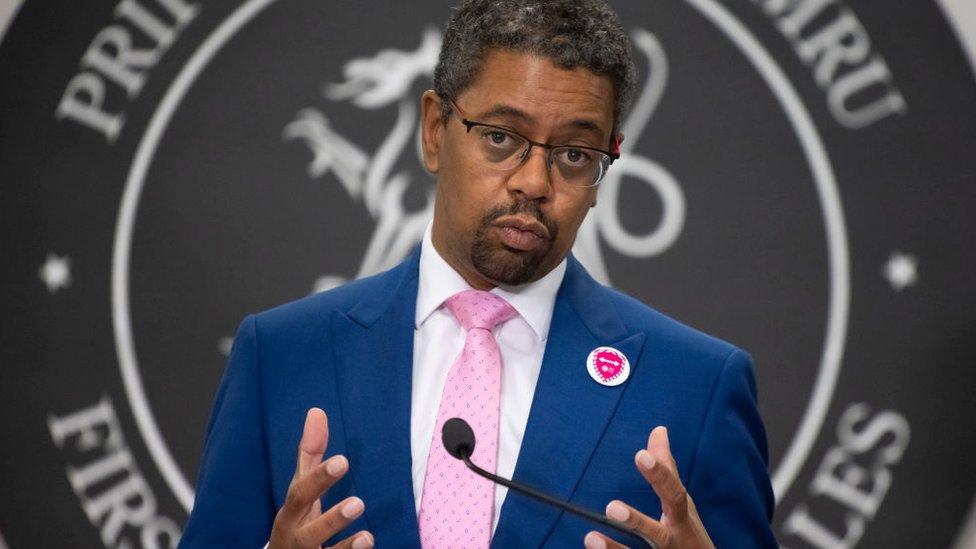
The focus is on delivering vaccines effectively and safely, says Vaughan Gething
"Looking ahead, all health boards are preparing for significant expansion in capacity from the beginning of January," added Mr Gething.
He said the new Oxford-AstraZeneca vaccine approved earlier this week would be available from some GPs in Wales from Monday.
"This is only the very beginning of what will be a programme spanning many months," he said.
"Whilst the urgency and priority required is clear to all, we must also have some patience and allow the NHS to do what it does so well.
"My focus, and that of the NHS, is on delivering the vaccine programme quickly but also effectively, safely and equitably."
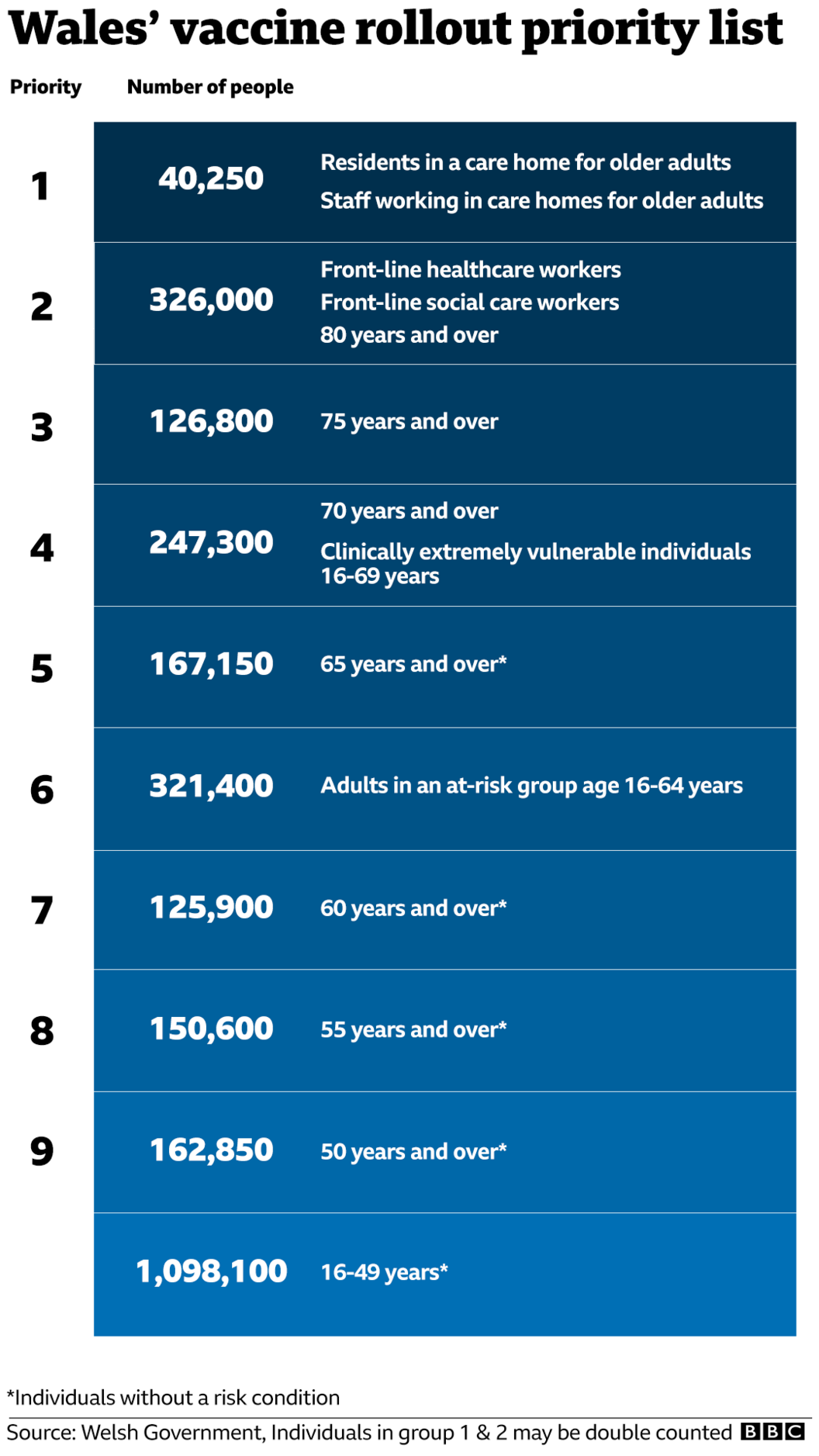

The Welsh Government has also confirmed it will be following the latest advice from medical advisers on introducing a 12-week gap between the two doses of vaccines needed, for both types of approved jabs.
All four chief medical officers in the UK have supported the Joint Committee on Vaccination and Immunisation, which said the focus should be on giving at-risk people the first dose of whichever vaccine they receive.
"It will ensure that more at-risk people are able to get protection from a vaccine in the coming weeks and months, reducing deaths and starting to ease pressure on our NHS," said Mr Gething.
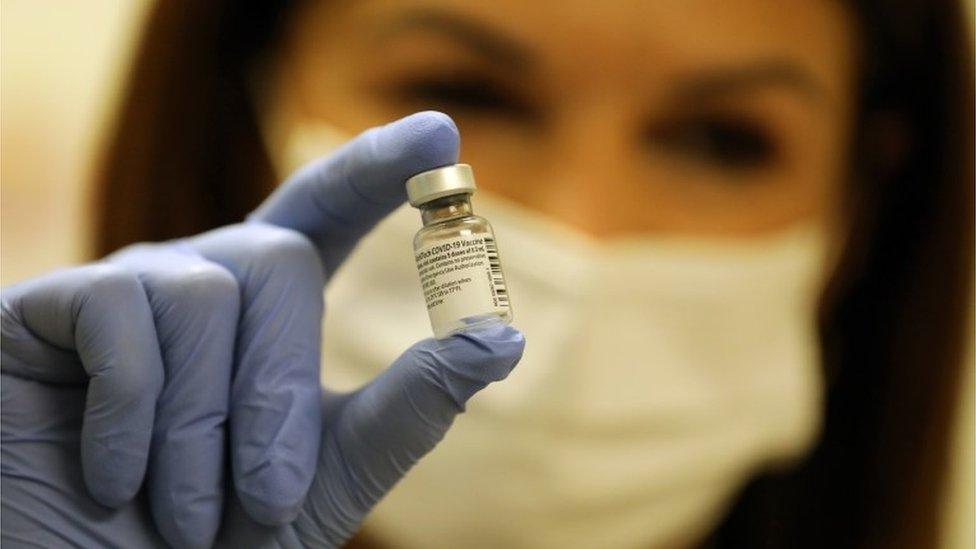
Vaccinations started earlier in December after regulators approved the Pfizer-BioNTech vaccine
Plaid Cymru has called on the Welsh Government to ask the UK government to publish evidence to justify increasing the period for the Pfizer-BioNTech vaccine.
In a letter to Mr Gething, the party's health spokesman Rhun ap Iorwerth said the "sudden switch" represented "a very significant departure" from previous guidelines.
He added there were "very real concerns" that a longer delay between doses "could significantly decrease the effectiveness of the vaccine".
- Published1 January 2021
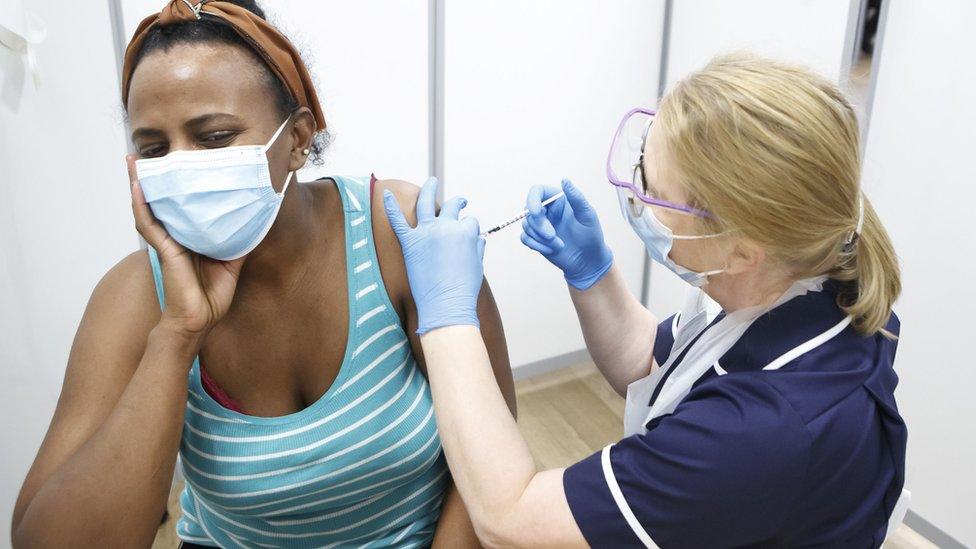
- Published31 December 2020
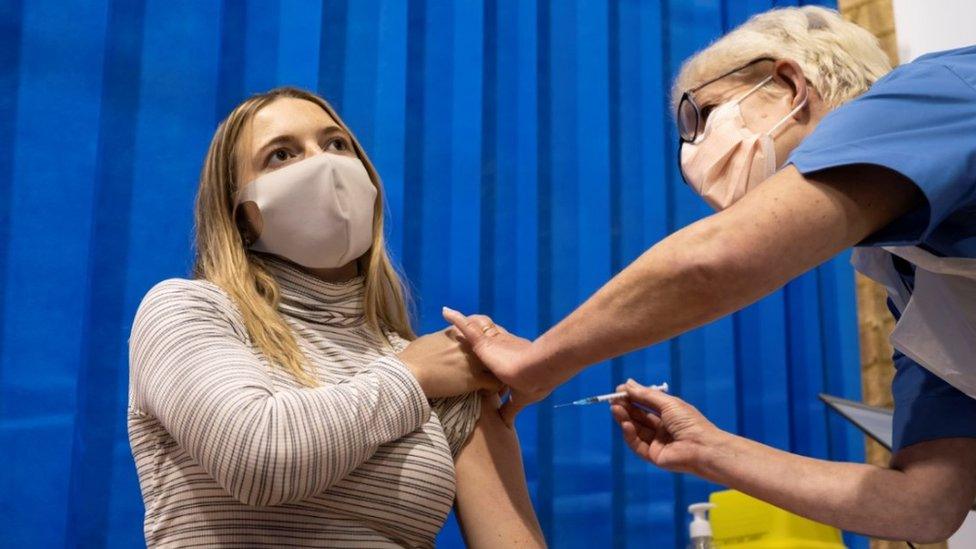
- Published30 December 2020
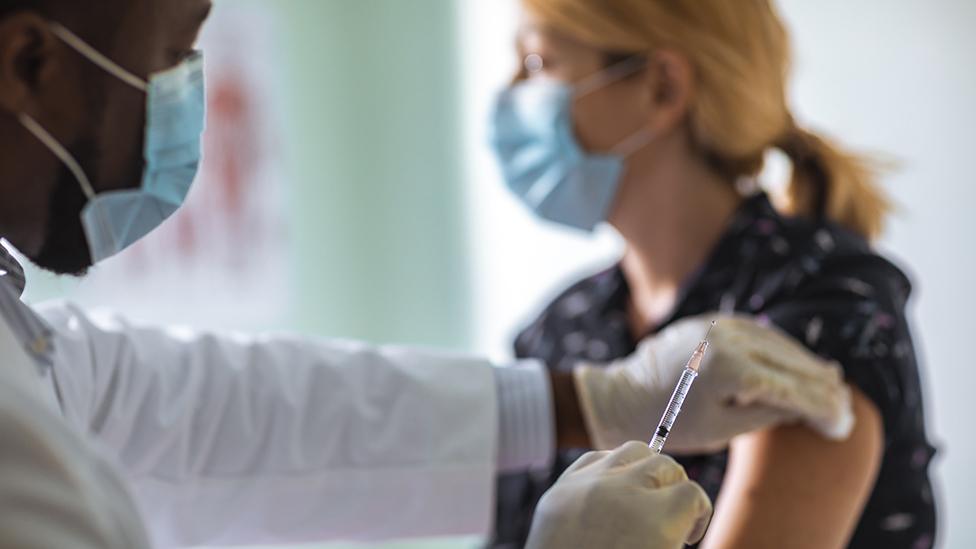
- Published30 December 2020
